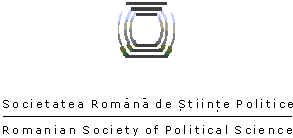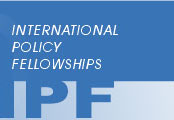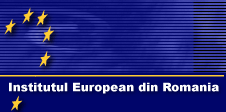Links
University of Bucharest, Faculty of Political Science - The study of political science of the University of Bucharest began in 1991, with the support of a consortium of universities: the University of Rennes 2 through the Centre de Droit Européen (CEDRE), the Institut d'Etudes Politiques of Rennes and the Université Libre de Bruxelles, and was organised according to the French model of an Institute of Political Studies (IPS). Until 1995, the teaching language was exclusively French. A Romanian-language programme was launched in 1995-96, and an English-language programme in 1997-98. The three programmes are organised according to the same system within the framework of two study cycles. The first cycle (the first and the second years) includes 16 compulsory disciplines and 8 background disciplines (modern languages, information technology, statistics). The second cycle (the third and fourth years) includes 4 compulsory disciplines, 4 background disciplines (research methods) and a choice of 16 optional courses, grouped under three main headings: Political Theory and Comparative Politics, International Relations and European Studies, and Public Policy and Political Management. All courses and seminars are organised on a semester basis. The content of the political science courses responds one of the most serious needs in contemporary Romanian society: the training of competent specialists in the complex problems ? political, law, economic, social, cultural problems ? raised by the democratisation process, by the process of political and institutional reform of the state, as well as by the process of integration in Euro-Atlantic structures and in the new political and economic world order. The accomplishment of this process entirely depends on the contribution of academic staff whose preparation must be in line with international academic standards.
 The Romanian Academic Society (SAR) was founded in 1995 as a Bucharest-based think tank with the mission of advancing the ideas of liberty, democracy and sound government. In our publications, public awareness campaigns and consultancy work, we have promoted the notion of government accountability through transparency and the reform of the public sector through deregulation, the introduction of clear standards and the implementation of market-type mechanisms.
The Romanian Academic Society (SAR) was founded in 1995 as a Bucharest-based think tank with the mission of advancing the ideas of liberty, democracy and sound government. In our publications, public awareness campaigns and consultancy work, we have promoted the notion of government accountability through transparency and the reform of the public sector through deregulation, the introduction of clear standards and the implementation of market-type mechanisms.
 The United Nations Development Programme (UNDP), based in New York City, is the UN's main provider of advice, advocacy and grant support on international development. UNDP is the UN's global development network, advocating for change and connecting countries to knowledge, experience and resources to help people build a better life. UNDP has offices in more than 160 countries. UNDP has six priority practice areas: Democratic Governance, Poverty Reduction, Crisis Prevention and Recovery, Energy and Environment, Information and Communications Technology, HIV/AIDS. UNDP is a trusted partner, and adviser to governments and NGOs around the world.
The United Nations Development Programme (UNDP), based in New York City, is the UN's main provider of advice, advocacy and grant support on international development. UNDP is the UN's global development network, advocating for change and connecting countries to knowledge, experience and resources to help people build a better life. UNDP has offices in more than 160 countries. UNDP has six priority practice areas: Democratic Governance, Poverty Reduction, Crisis Prevention and Recovery, Energy and Environment, Information and Communications Technology, HIV/AIDS. UNDP is a trusted partner, and adviser to governments and NGOs around the world.
UNDP Romania is dedicated to helping Romania become a developed country, by providing high quality advisory services to the Government and capacity building projects. In this sense and working in strong partnerships with civil society, private sector and development partners, UNDP is committed to facilitating the country's transition to a well governed, democratic society, with a competitive market economy and a clean environment, thus contributing to improving the life of the Romanian people.
 The Romanian Society of Political Science (SRSP) is an independent professional organization of Romanian and international scholars teaching and researching in political science or related fields. Its main goal is to improve the environment for teaching and research in political sciences in Romania. The Society was established in January 2000 to enhance and give an institutional dimension to the individual efforts aimed at improving the standards of teaching and research in Romanian political science. It emerged as a response to the growing need for better communication and co-ordination between scholars who conduct their work within established institutions or on an independent basis, both inside and outside Romania. The Romanian Society of Political Science is a stable framework for periodic meetings and common activities for Romanian and international researchers who share similar interests, and are committed to improving the academic standards in Romanian political science.
The Romanian Society of Political Science (SRSP) is an independent professional organization of Romanian and international scholars teaching and researching in political science or related fields. Its main goal is to improve the environment for teaching and research in political sciences in Romania. The Society was established in January 2000 to enhance and give an institutional dimension to the individual efforts aimed at improving the standards of teaching and research in Romanian political science. It emerged as a response to the growing need for better communication and co-ordination between scholars who conduct their work within established institutions or on an independent basis, both inside and outside Romania. The Romanian Society of Political Science is a stable framework for periodic meetings and common activities for Romanian and international researchers who share similar interests, and are committed to improving the academic standards in Romanian political science.
 International Policy Fellowships (IPF) program was launched in April 1998 as a program of the Open Society Institute-Budapest to identify and nurture the next generation of open society leaders in the countries of the former Soviet Union, Central and Eastern Europe, and Mongolia. IPF joined forces with the Center for Policy Studies when it was established in late 1999 and began offering training to Policy Fellows to develop their capacity to write professional policy documents, identify appropriate policy instruments, and effectively advocate policies–skills that remain underdeveloped in countries where the Soros foundations work. [ click here for an alternative Internet adress of IPF ]
International Policy Fellowships (IPF) program was launched in April 1998 as a program of the Open Society Institute-Budapest to identify and nurture the next generation of open society leaders in the countries of the former Soviet Union, Central and Eastern Europe, and Mongolia. IPF joined forces with the Center for Policy Studies when it was established in late 1999 and began offering training to Policy Fellows to develop their capacity to write professional policy documents, identify appropriate policy instruments, and effectively advocate policies–skills that remain underdeveloped in countries where the Soros foundations work. [ click here for an alternative Internet adress of IPF ]
![]() The Merck Company Foundation is a US-based, private, charitable foundation. Established in 1957 by Merck & Co., Inc., the Foundation is funded entirely by the Company and is Merck’s chief source of funding support to qualified non-profit, charitable organizations. The mission of the Foundation is to advance the Company’s philanthropic goals to support biomedical science training and education and to improve health care worldwide. Where appropriate, funding is also given to support social service, art and cultural, civic, environmental, and other programs. The Foundation also supports employee giving to qualified non-profit organizations through the Matching Gift Program and Employee Giving Campaign.
The Merck Company Foundation is a US-based, private, charitable foundation. Established in 1957 by Merck & Co., Inc., the Foundation is funded entirely by the Company and is Merck’s chief source of funding support to qualified non-profit, charitable organizations. The mission of the Foundation is to advance the Company’s philanthropic goals to support biomedical science training and education and to improve health care worldwide. Where appropriate, funding is also given to support social service, art and cultural, civic, environmental, and other programs. The Foundation also supports employee giving to qualified non-profit organizations through the Matching Gift Program and Employee Giving Campaign.
 Central European University (CEU) is an internationally recognized institution of post-graduate education in social sciences and humanities. It serves as an advanced center of research and policy analysis and facilitates academic dialogue while preparing its graduates to serve as the region's next generation of leaders and scholars. CEU seeks to contribute to the development of open societies in Central and Eastern Europe and the former Soviet Union by promoting a system of education in which ideas are creatively, critically, and comparatively examined. However, it has also become clear over the last decade that Central and Eastern Europe and the former Soviet Union are not the only parts of the world experiencing the development of more open societies. In response to this spreading democratization, from the 2001/2002 academic year the university will continue to focus on individuals and organizations in the region while extending the CEU Fellowship Program worldwide, with emphasis on students from countries experiencing emerging democracies.
Central European University (CEU) is an internationally recognized institution of post-graduate education in social sciences and humanities. It serves as an advanced center of research and policy analysis and facilitates academic dialogue while preparing its graduates to serve as the region's next generation of leaders and scholars. CEU seeks to contribute to the development of open societies in Central and Eastern Europe and the former Soviet Union by promoting a system of education in which ideas are creatively, critically, and comparatively examined. However, it has also become clear over the last decade that Central and Eastern Europe and the former Soviet Union are not the only parts of the world experiencing the development of more open societies. In response to this spreading democratization, from the 2001/2002 academic year the university will continue to focus on individuals and organizations in the region while extending the CEU Fellowship Program worldwide, with emphasis on students from countries experiencing emerging democracies.
CEU Alumni Association Directory is an online search that provides basic contact information about CEU alumni. This restricted-access directory is available only to the members of the CEU Alumni Association.
 The London School of Economics and Political Science (LSE) is a world class centre for its concentration of teaching and research across the full range of the social, political and economic sciences. LSE is an unusual university. Few university institutions in the world are as international. The study of social, economic and political problems covers not only the UK and European Union, but also countries of every continent. From its foundation LSE has aimed to be a laboratory of the social sciences, a place where ideas are developed, analysed, evaluated and disseminated around the globe. Thirteen Nobel Prize winners in economics, literature and peace have been either LSE staff or alumni: George Bernard Shaw (1925), Ralph Bunche (1950), Bertrand Russell (1950), Philip Noel-Baker (1959), Sir John Hicks (1972), Friedrich von Hayek (1974), James Meade (1977), Arthur Lewis (1979), Merton Miller (1990), Ronald Coase (1991), Amartya Sen (1998), Robert Mundell (1999) and George Akerlof (2001).
The School has more than 62,000 registered alumni. Around 28 past or present heads of state have studied at LSE, and 30 members of the House of Commons and 34 members of the House of Lords have either studied or taught at LSE.
The London School of Economics and Political Science (LSE) is a world class centre for its concentration of teaching and research across the full range of the social, political and economic sciences. LSE is an unusual university. Few university institutions in the world are as international. The study of social, economic and political problems covers not only the UK and European Union, but also countries of every continent. From its foundation LSE has aimed to be a laboratory of the social sciences, a place where ideas are developed, analysed, evaluated and disseminated around the globe. Thirteen Nobel Prize winners in economics, literature and peace have been either LSE staff or alumni: George Bernard Shaw (1925), Ralph Bunche (1950), Bertrand Russell (1950), Philip Noel-Baker (1959), Sir John Hicks (1972), Friedrich von Hayek (1974), James Meade (1977), Arthur Lewis (1979), Merton Miller (1990), Ronald Coase (1991), Amartya Sen (1998), Robert Mundell (1999) and George Akerlof (2001).
The School has more than 62,000 registered alumni. Around 28 past or present heads of state have studied at LSE, and 30 members of the House of Commons and 34 members of the House of Lords have either studied or taught at LSE.
 Institutul European din Romania (IER) este o institutie publica infiintata cu scopul de a asista administratia publica, mediul de afaceri si societatea civila în procesul de constientizare si asumare a exigentelor implicate de procesul de preaderare si integrare a Romaniei in Uniunea Europeana. Creat pentru a raspunde unei nevoi acute de expertiza in acest domeniu, IER presteaza o serie de servicii de inalta competenta pentru grupurile sale tinta: politicieni si consilieri, specialisti si practicieni din domeniul integrarii europene, mediul academic, societatea civila.
Institutul European din Romania (IER) este o institutie publica infiintata cu scopul de a asista administratia publica, mediul de afaceri si societatea civila în procesul de constientizare si asumare a exigentelor implicate de procesul de preaderare si integrare a Romaniei in Uniunea Europeana. Creat pentru a raspunde unei nevoi acute de expertiza in acest domeniu, IER presteaza o serie de servicii de inalta competenta pentru grupurile sale tinta: politicieni si consilieri, specialisti si practicieni din domeniul integrarii europene, mediul academic, societatea civila.
| up |